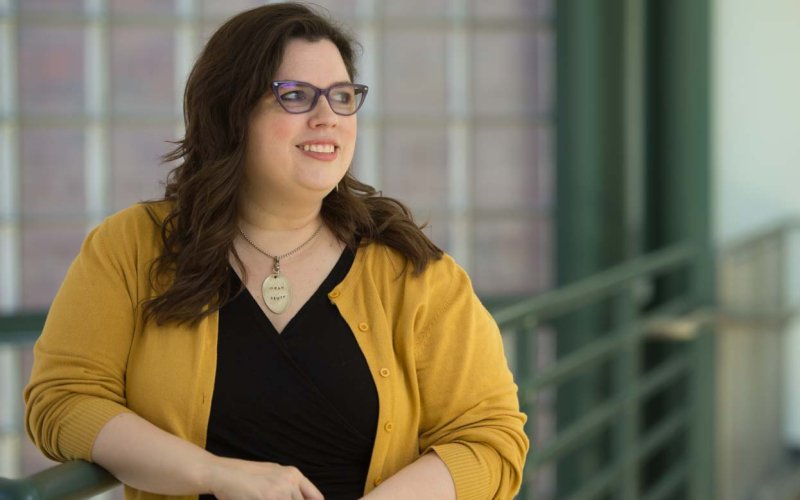2023 Katharine Briar-Lawson Lecture to Focus on the Role of AI in Social Work

By Erin Frick
ALBANY, N.Y. (Feb. 21, 2023) — Melanie Sage, a renowned expert in the role of technology in social work, will deliver the 2023 Katharine Briar-Lawson Lecture, hosted by University at Albany’s School of Social Welfare (SSW). Sage will explore the topic “Algorithms in social work: Data-driven practice or dystopian future?” The virtual presentation is open to the public, and will be held on Wednesday, March 8 from 12:00 - 1:00 p.m.
Artificial intelligence (AI) holds great promise as a tool for public good. For example, in social work research and education, the use of simulations is being explored to better understand the needs of focal populations, and gain insights into the potential outcomes of various interventions. At the same time, it is important to consider the limitations of the technology to ensure the best possible outcomes for those it is meant to serve. Questions around safety and equity are central in these conversations.
“The School of Social Welfare is excited to be part of UAlbany’s AI initiative as we begin to test ways to apply these new technologies, which are both cutting edge and much needed,” said Victoria Rizzo, interim dean of the School of Social Welfare. “As one of the prominent social work researchers focused on social work and technology, we chose Dr. Sage as our speaker so we can begin discussions about the School of Social Welfare’s role in the artificial intelligence space.
“We want to begin to answer questions, such as: What role do social workers play in ensuring AI applications are ethical and free of implicit biases and stereotypes? How do we ensure that oppressive and racist views are not embedded in the applications we use with clients? What are the ethical principles social workers in collaboration with other disciplines should use to inform the development and use of AI health and human services? And importantly, how do we educate our students in the ethical use of AI in their practice with individuals, families, groups, organizations and communities?”
Melanie Sage is a trauma-informed motivational interviewing consultant and trainer. She currently conducts research at a Fortune 100 company, where she informs strategy to improve equity and public trust. As a former faculty member at the University at Buffalo, Sage published numerous studies concerning the impact of social media and technology on children and how to support child welfare in digital environments.
Sage co-authored the book Teaching Social Work with Digital Technology, which is aimed at social work educators and addresses topics like digital literacy, ethical implications for technology in social work practice and using technology in digital and traditional classrooms.
“Advocates of AI promise that the technology will allow social workers to leverage data-informed decision making, to help make precision recommendations about the most effective interventions for individual clients,” said Sage. “However, as AI begins to permeate our organizations and workflows, social workers must be armed with information to help them decide when to adopt these models, or when to reject them. We must also understand our roles in assuring AI approaches are applied with fairness and equity in mind.”
These questions are already on the table close to home. Lisa DeLaMater, assistant dean and director of field education in UAlbany’s School of Social Welfare, is beginning to explore new ways to incorporate AI technology into SSW curricula.
“Simulation in healthcare education creates an important bridge between classroom learning and clinical field experience,” said DeLaMater. “The development of virtual simulation technology allows social work students to assume their future professional role while honing skills of engagement, assessment and intervention, as well as practice with no inherent risk to the person they are serving. However, it is critical that the virtual interactions be reviewed between student and social work professional in order to obtain the critical feedback that can then shift and improve their future interactions with vulnerable, at-risk clients.”
The Katharine Briar-Lawson Lecture series was established as a tribute to Briar-Lawson’s impactful career when she stepped down as Dean of UAlbany’s School of Social Welfare in 2015. The lectures aim to share a broad range of topics related to the research and practice of social work with UAlbany students, faculty and the broader community.
Register here to attend the virtual session.




